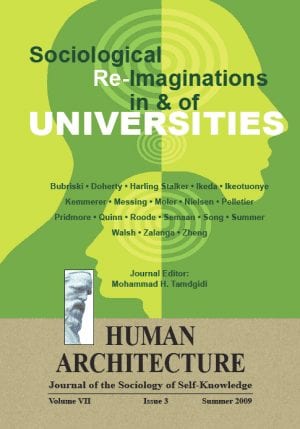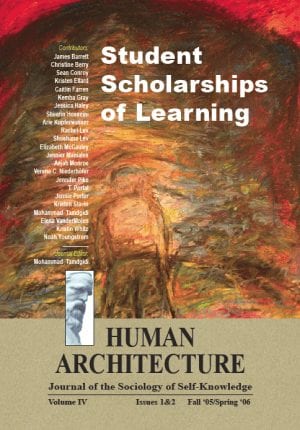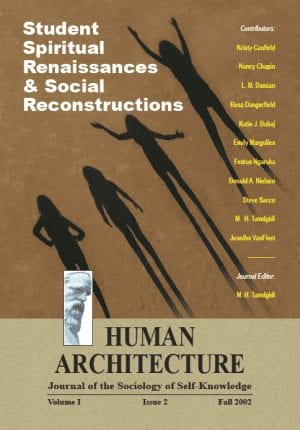Journal Article — Marx, Gurdjieff, and Mannheim: Contested Utopistics of Self and Society in a World-History Context — by Mohammad H. Tamdgidi
$15.00
This presentation is more an exercise in theorizing history (in this case the dialectics of world-history and utopistic praxis) than in historiography, though I am not sure if the two can really be separated and dualized as such. My concern here is with contested identities (in a world-history context) of not just who we are, but who we can and should be.
Description
Abstract
This presentation is more an exercise in theorizing history (in this case the dialectics of world-history and utopistic praxis) than in historiography, though I am not sure if the two can really be separated and dualized as such. My concern here is with contested identities (in a world-history context) of not just who we are, but who we can and should be. What attracted me to this panel topic was in fact the ways in which it could accommodate comparative and cross-disciplinary discourses of self and world on one hand and theory and practice on the other. Above all, however, from the standpoint of my applied sociological interest in comparative utopistics, it allowed me to problematize and historicize the taken-for-granted notion of “contestation” itself, questioning whether identities have to be contested, even if they have undoubtedly been so, throughout millennia.
Recommended Citation
Tamdgidi, Mohammad H. 2003. “Marx, Gurdjieff, and Mannheim: Contested Utopistics of Self and Society in a World-History Context.” Pp. 102-120 in Social Theories, Student Realities (Human Architecture: Journal of the Sociology of Self-Knowledge: Volume II, Issue 1, 2003). Belmont, MA: Okcir Press (an imprint of Ahead Publishing House).
The various editions of Social Theories, Student Realities can be ordered from the Okcir Store and are also available for ordering from all major online bookstores worldwide (such as Amazon, Barnes&Noble, and others).
Read the Above Publication Online
To read the above publication online, you need to be logged in as an OKCIR Library member with a valid access. In that case just click on the large PDF icon below to access the publication. Make sure you refresh your browser page after logging in.








